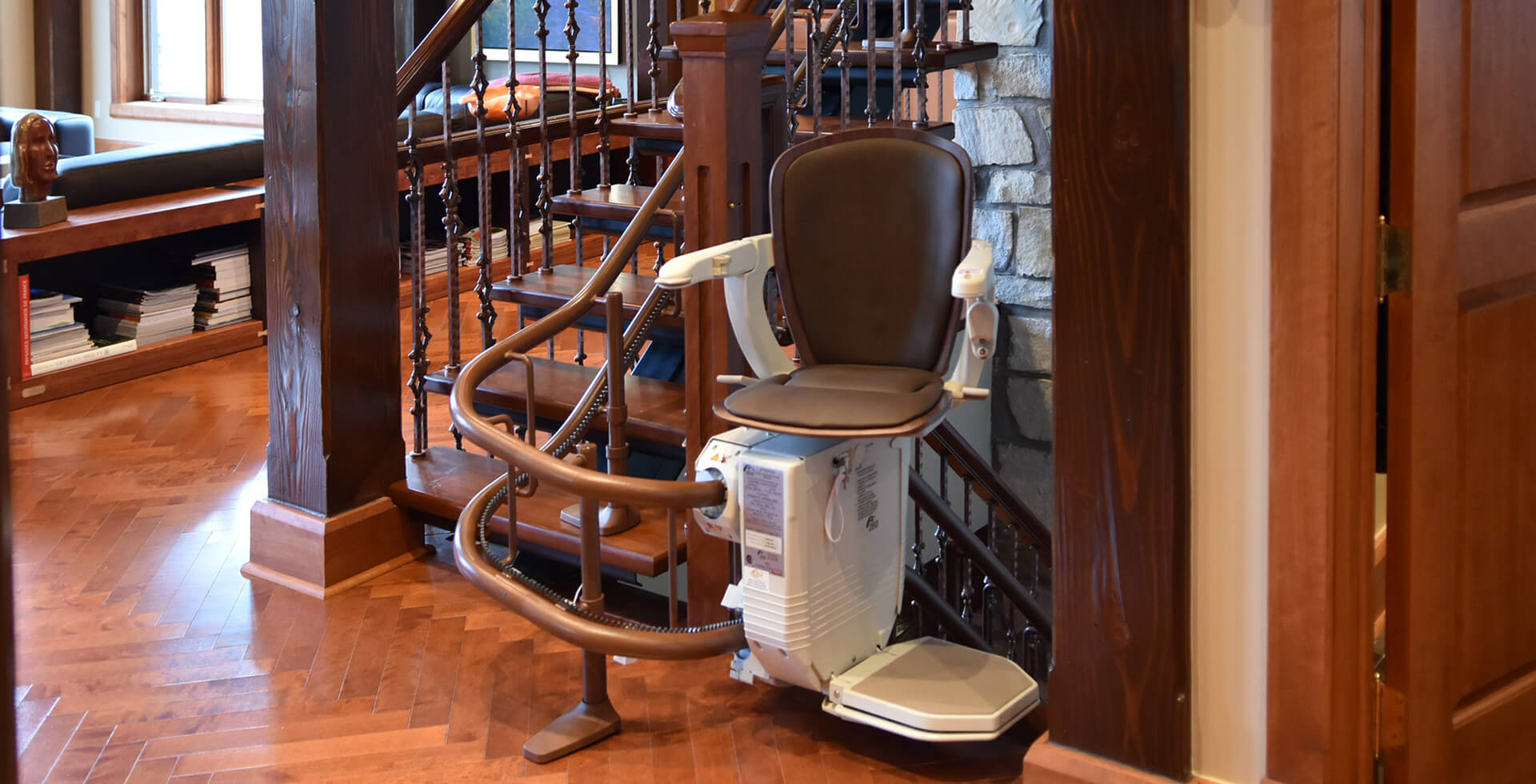The costs of moving
Most people prefer to stay at home as long as possible. The home is generally synonymous with security, stability and comfort. The possibility of moving has something to destabilize, even worry the person it concerns.
When a person is struggling with a reduction in their ability to move around, they are then faced with several choices: sell to buy a single-storey house, move to adapted housing, move to a caregiver whose home must be properly fitted out to meet their needs or adapt their own home. Of course, the choice must be made wisely, as it will have consequences, good or bad, in the long run.
In any case, when suddenly life changes and we find ourselves with a mobility problem, even affecting movement in our home, it is easy to succumb to panic. We can then believe that the only way to adapt to this reality is to change housing. It is comforting, however, to be able to make a well-informed decision.
For example, in the case of seniors, moving to seniors’ residences can be quite difficult because they fear losing their independence. They are often worried about the treatment they will receive and are not very excited about leaving the home they have taken a lifetime to cherish, maintain, improve and personalize. After all, moving is, most of the time, like being uprooted. It is also said that it is the third greatest source of stress, after the anxiety caused by the death of a loved one and the anguish experienced following a dismissal.
The stages of moving:
Planning and organizing moving takes a lot of time and effort, here is an overview of the essential steps:
- Sorting the different items: to sell, to give away, to throw away, to keep.
- Emotional detachment from objects or places that are close to our hearts: the house itself is the guardian of the memories of a full life, but we must also consider the neighborhood; the grocer, the pharmacist, the neighbors and all other familiar people and places.
- Preparing to move; packing and possibly unpacking the objects.
- Fitting out the new home; plan the arrangement of old furniture if it is suitable, or the shopping for new ones when it is essential, and the personalized installation (frames, decorations, curtains).
- Shopping for and booking professional moving services.
- Planning and execution of work if necessary.
- Administrative formalities relating to the sale and purchase/rental of the new home: payment of welcome taxes, notary fees, real estate agent’s commission, etc.
- Financial planning of all previous steps.
All these steps are certainly stressful and trying, both physically and emotionally for the person concerned and it is not far-fetched to assess the need for them.
Moving costs:
Many people think they can save money by changing their residence. But is this really the case?
When the decision to move is made, due to illness or loss of physical autonomy, people generally look for a small house without stairs. These houses are rather rare in Quebec. While it is easy to find small houses, finding ones that have neither interior stairs nor exterior stairs presents a significant challenge. It will probably be necessary to adapt this new property in addition to paying all the costs caused by the move.
Example of moving costs for a home valued at $300,000 located in Montreal
- Home Inspection Fee – Approximately $700
- Assessment fee – $250 to $350
- Notary fees and expenses1 – Approximately $1,000
- Accessory costs and adjustment of accounts2. – According to the calculations of the notary
- Mortgage insurance3. – Varies between 0.60% to 5.65%
- First municipal and school tax bills – Varies by borough. Approximately $3000 to $5000
Welcome Tax4 – Approximately $3000 - Moving costs – Prices vary greatly depending on the time of year, the number of services requested, the distance between residences. Fees are generally $750 and up.
- Connection fees to the various public services5 – Approximately $50 per service depending on the region and the company.
- Mail Forwarding – Minimum $52.95
- Decoration costs – Related to our tastes and desires
Minimum subtotal: Approximately $8,902.95
1- The financial institution may sometimes require that a professional assess the real value of the property.
2- Municipal and school taxes, electricity and/or natural gas bills, condominium fees if applicable. Everything is calculated by the notary.
3- Must be paid by buyers who do not provide a down payment of at least 20% of the price of the property. https://www.cmhc-schl. gc.ca/en/co/asprhy/asprhy_005.cfm
4- For example, in Montreal, this tax is calculated as follows: 0.5% of the value of the house on the first $50,000, 1% on the amount between $50,001 and $250,000 and 1.5% on the amount between $250,000 and $500,000 and 2% on any excess amounts 500,001
5-Residential telephone service, cable, electricity, gas, internet, etc.
Other costs such as: Plans and specifications for renovations, renovation permits, purchase of new furniture and appliances, interior renovations and layouts, renovations and exterior layouts, property survey fees, home adaptations and any other possible costs. Realistically, it is fair to consider that selling to relocate elsewhere will cost at least $10,000.
Move or stay?
In the end, moving expenses are sometimes higher than you might think.
Considering adapting your home to reduce the costs and stress levels associated with this laborious operation can suddenly seem much simpler and achievable than moving. After all, the memories you have that are linked to your home, all the time you spent making your home warm, welcoming and pleasant are factors that, without having any real value on the real estate market, are not to neglect for your level of well-being. Moving is rarely the only option.
Adapting your home, which is often easy and accessible, can really be a wise choice.
Use our services, so you can make the right decision.

